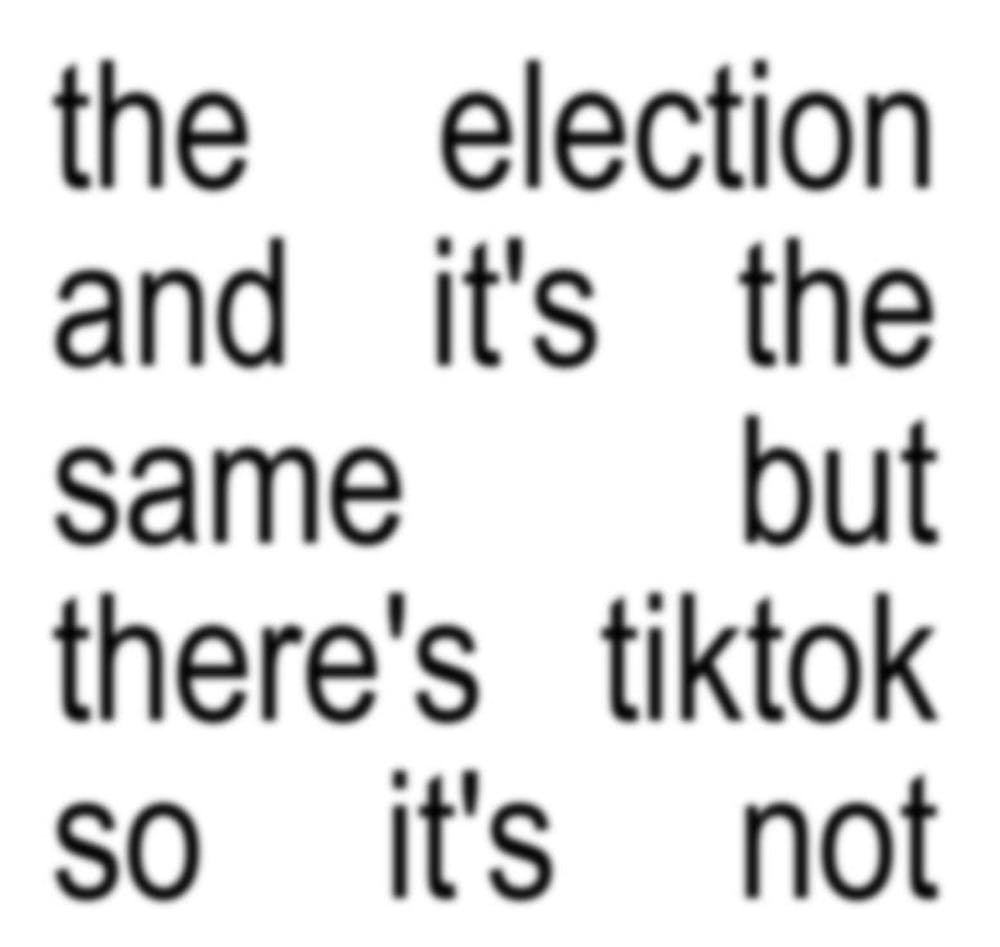Thirteen minutes after President Joe Biden announced on X that he was dropping out of the race, my friend Shannon forwarded me a post from a meme account. “This is how I found out,” she texted.
“Biden dropped out lol,” the post read.
The comments echoed the mood:
“HE STEPPED DOWN ON NATIONAL ICE CREAM DAY.”
“i want you to know this is how I found out.”
Many commenters acknowledged the absurdity of learning a critical piece of information from a meme account.
I came of age with social media. I send memes to my friends, laugh at TikToks and spell all words with lowercase letters. (I know better than to end a text with a period).
I am also one of more than 40 million Generation Z Americans eligible to vote in November. And I’m nervous that our unserious nature harms political literacy.
Why so unserious?
Social media shortens our attention spans — and creates a dopamine high. Pulling away requires effort. Reading news also takes effort. Why risk losing the dopamine rush when most of us believe there’s nothing we can do anyway?
To be clear, I don’t believe this. But some of my peers do. According to a PRRI finding, nearly half of American adults don’t trust the government — and even fewer Gen Z Americans do.
There’s a theme in social media: Gen Z Americans interpret the current presidential candidates as caricatures of themselves, as entertaining but inevitably unethical figureheads, which leads to political aimlessness and meme-culture coping.
Viral content is curated to this mindset, aimed at evoking low-effort reactions: ironic captions, out-of-pocket videos and excessive references to trending memes is pinnacle Gen Z humor.
But when all situations become meme-able humor, translated into dozens or hundreds of viral posts, this becomes the new expectation of political reality.
Trained algorithms feed Gen Z with Charli xcx's album “BRAT," coconut trees (in reference to Kamala Harris’s famous speech), Taylor Swift, Zach Bryan, Chappell Roan and other niche references depending on one’s interests.
But what is the impact on young voters who tend not to take things seriously by default?
Meaning amid chaos
Social media has the potential to overwhelm voters with emotion and rhetoric, suppressing the facts and real-world policies that construct a candidate’s platform.
Voting based on a candidate’s “vibe” — constructed from posts — isn’t necessarily wrong, but it creates potential for harm.
The negative consequences don’t follow party affiliations. According to a Princeton data study, posts on X decreased Republican voter turnout in the 2016 and 2020 elections. The multitude of posts also swayed moderate voters against former President Trump during the 2016 election.
Posts promote existing beliefs and manipulate positions even further. In turn, we disassociate ourselves from a collective political middle ground.
Although engaging with social media in viral ways can boost voter turnout, viral posts also have the potential to eclipse the dissemination of crucial facts. In short, voters may participate with less information than jokes.
Adding to the internet’s enthusiasm, Vice President Kamala Harris is embracing “BRAT” branding to mobilize Gen Z votes. In doing so, she’s utilizing a viral camouflage that may sway moderate Gen Z voters. It could win her the election.
As my friend Katelyn sent me recently, “Why do I feel like Charli XCX calling Kamala brat is what is gonna unite Gen z into voting …”
Compassion
It feels like elected officials have little compassion for us. But it also feels like we have little compassion for them.
Part of the reason why might be from social media redefining candidates into memes and losing their human dimension. We often disregard dimension and trivialize events.
For years, I’ve witnessed young users, including myself at times, make light of grave news. My friends and I agree that some viral posts have snowballed into absurdities and illusions of truth.
A few weeks ago, many TikTok posts said Katniss Everdeen of “The Hunger Games” trilogy “wouldn’t have missed,” after former president Trump’s attempted assassination, which killed a fire chief and injured others. Another meme compared Trump’s bloody ear to a piercing at Claire’s, a mall kiosk.
No matter the election’s outcome, America will need compassion to heal its current political state. Caring for leaders, regardless of political identity, will help rebuild faith in politics by helping the country understand “the other.”
If we can feel this much humor, we can act with humanity and understand that politicians, too, are humans. And in doing so we take back more seriousness.
Redmond (Reddy) Bernhold is a junior studying biochemistry and journalism. He originally hails from Minster, Ohio but calls Siegfried Hall his home on campus. When not writing, he explores South Bend coffee shops and thrift stores. You can contact Reddy at rbernho2@nd.edu.










